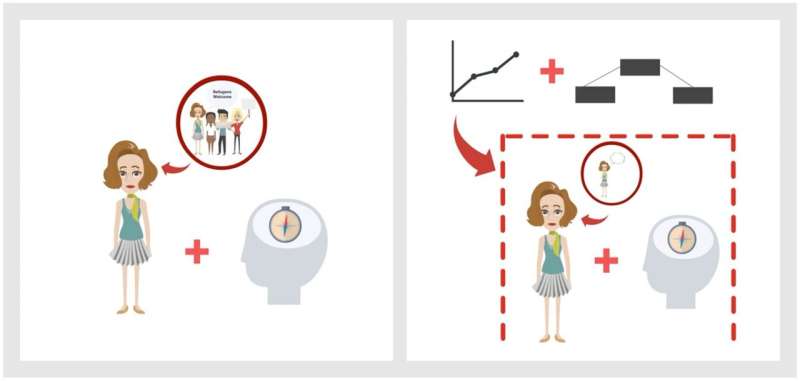In a groundbreaking study conducted by the University of Cologne, researchers have discovered that video summaries of scientific studies, when presented in a simplified manner, enhance comprehension but may also lead viewers to overestimate their own expertise. This phenomenon, termed the “easiness effect,” raises important questions about the balance between accessibility and accuracy in science communication.
The study, led by Professor Dr. Dr. Kai Kaspar and published in the journal Frontiers in Psychology, explores how simplified language and visual presentations in video abstracts can impact the viewer’s perception of credibility and self-assessed expertise. The findings suggest that while these videos make scientific content more accessible, they also inadvertently boost the viewer’s confidence in their ability to evaluate the studies, irrespective of their actual understanding.
The Easiness Effect: A Double-Edged Sword
Traditionally, scientific studies are published in specialist journals, targeting audiences with prior knowledge and understanding of the technical language. However, to reach a broader audience, these studies are often translated into simpler formats, such as video summaries. The research team at the University of Cologne sought to understand the implications of this trend.
The study involved translating text summaries of four scientific studies into short videos, each presented in two versions: one using technical jargon and complex visuals, and the other utilizing simpler language and presentation. A total of 179 participants were randomly assigned to watch either the simplified or the more complex videos. Additionally, half of the participants were informed about the easiness effect through an educational video before viewing the summaries.
Key Findings and Implications
The results demonstrated a clear pattern: video summaries using simpler language led to better comprehension of the scientific content. However, the easiness effect was also prevalent, as these videos were perceived as more credible, and participants expressed greater confidence in their ability to evaluate the studies. Notably, this effect persisted even when participants were pre-informed about the potential for overconfidence.
“This experiment shows that the ‘easiness effect’ can be reliably generated with video summaries and is very robust, as it persists even when people have been informed about the effect and its potentially negative impact on their own competence assessment,” says study leader Kaspar.
The study’s findings highlight the need for responsible strategies in science communication. While simplified videos can democratize access to scientific knowledge, they also risk fostering a false sense of expertise among viewers, which could diminish their motivation to seek further information or expert opinions.
Historical Context and Expert Opinions
The easiness effect is not entirely new. Previous studies have shown similar outcomes with text-based summaries, where simplified information leads to inflated perceptions of credibility and self-assessed knowledge. The current study extends this understanding to video-based formats, which are increasingly popular in today’s digital age.
Experts in science communication emphasize the importance of maintaining a balance between accessibility and accuracy. Dr. Lisa Lock, an associate editor involved in the study’s review, notes, “While it’s crucial to make science accessible, we must also ensure that simplification doesn’t compromise the viewer’s ability to critically assess the information.”
Future Directions and Recommendations
As video summaries become a staple in science communication, the study underscores the need for strategies to mitigate the easiness effect. This includes educating viewers about the potential for overconfidence and encouraging critical engagement with the content.
Moving forward, researchers suggest incorporating interactive elements in video summaries, such as quizzes or prompts that challenge viewers to reflect on their understanding. Additionally, providing links to more detailed resources or expert commentary could help balance the ease of comprehension with the depth of understanding.
The University of Cologne’s study serves as a call to action for the scientific community to refine their communication strategies, ensuring that the democratization of science does not come at the cost of accuracy and critical thinking.
For more detailed insights into the study, readers can access the full publication in Frontiers in Psychology through the DOI: 10.3389/fpsyg.2025.1584695.
About The Author
 Ancient Egyptian DNA Study Reveals North African and Fertile Crescent Ancestry
Ancient Egyptian DNA Study Reveals North African and Fertile Crescent Ancestry Largest Martian Meteorite on Earth Set to Auction for $4 Million
Largest Martian Meteorite on Earth Set to Auction for $4 Million Breakthrough Discovery of DNA “Range Extenders” Sheds Light on Gene Activation
Breakthrough Discovery of DNA “Range Extenders” Sheds Light on Gene Activation European Satellites Launch to Revolutionize Weather Forecasting and Air Quality Monitoring
European Satellites Launch to Revolutionize Weather Forecasting and Air Quality Monitoring NASA’s Spacemobile: A Journey Through Space Education
NASA’s Spacemobile: A Journey Through Space Education